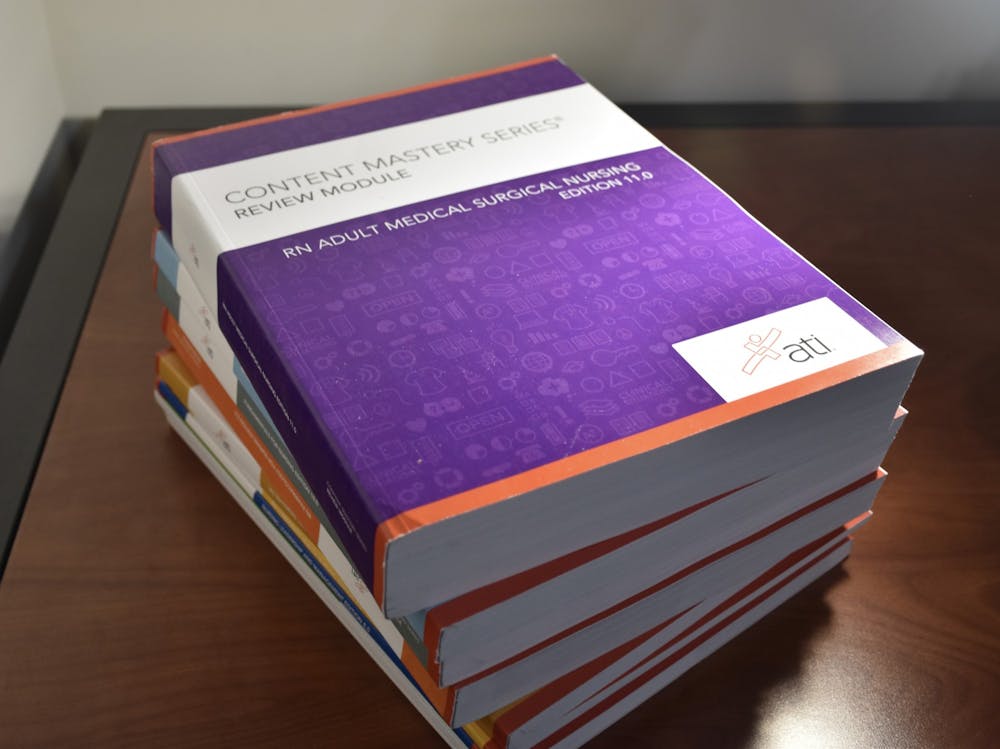The Public Interest Research Group Campus Action organization is partnering with the U.Va. Library system to provide students better access to affordable textbooks this semester. PIRG will also work with local organizations to target hunger and homelessness in the Charlottesville community this spring.
Founded last year, PIRG Campus Action has organized a campaign to register students to vote, a campaign to ban plastic and has continuously advocated for textbook affordability over the past year. The organization part of a national organization that trains students to support social change initiatives in their communities.
The textbook affordability campaign is run by Clare O’Reilly, head PIRG intern and third-year College student, and focuses on making open educational resources more readily available for students at the University. OERs are accessible online textbooks, syllabi, course modules and other educational materials that can be used by anyone regardless of enrollment. According to O’Reilly, PIRG’s long-term goal is to gather funding to set up an OER coordinator to work full-time at the library and to support professors who want to write their own OERs.
O’Reilly discussed the implications of the lack of accessible textbooks at the University in an interview with The Cavalier Daily, citing expensive course materials as a barrier to learning for some students.
“Something you hear really often is that students just can’t take specific classes because they can’t afford the textbook,” O’Reilly said. “Or they’ll take a lower grade because they can’t afford to buy [the textbooks] and they can’t do the readings.”
While a large portion of the University student body come from families in the top 20 percent of income — 2.8 percent come from the bottom 20 percent, according to a 2017 study from the New York Times — O’Reilly cautioned against generalizing the student body based on that.
“There is a misconception that most U.Va. students don't have to worry about things like rent because they’re well off,” O’Reilly said. “There is a section of the University that is very well off but we need to recognize that that's not necessarily a majority of the students and even if it is, it's not fair to any student who can't afford to pay $500 to $600 to say [to them], ‘sorry, deal with it.’”
To combat the issue of affordability, PIRG partnered with the Virtual Library of Virginia — the consortium of Virginia’s nonprofit academic libraries — which works to build an accessible infrastructure of library resources for students and faculty in higher education. VIVA gathered data and personal stories from the University about the impact of course material costs on students' lives.
VIVA conducted a course materials survey across member institutions in Virginia to gather information about the impact of course materials on educational equality. Based on the survey, most respondents, or 263 students of the 472 surveyed, spent between $101 and $300 on textbooks in one semester. A smaller but not insignificant percentage, less than 10 percent, spent over $500.
Some student responses featured on the University library website report significant stress from the high cost of materials, lack of access to optional but recommended course materials and having to choose between food and textbooks.
The University library system is working on the OER campaign as well and currently offers information about finding, using and creating OERs on their website. The campaign has experienced some victories, with the Student Council passing a resolution in support of PIRG’s goal of adding OERs as a school-wide option for all students April 6.
This semester, the group is seeking another referendum in support of their textbook affordability goals from the Faculty Council — a group that represents full- and part-time faculty and Senior Professional Research Staff and advises the University on matters related to its constituents. Student Council also has its own Textbook Access Office, which allows students to request or place books on hold in order to make textbooks cheaper and more accessible.
Many professors at the University provide PDFs of readings to students online, but some departments and courses still rely heavily on purchased textbooks.
O’Reilly is looking forward to participating in more educational programs to teach students about accessible educational resources and the importance of textbook affordability.
“We’re really excited, we’re hoping we can make it into a series just to get more student support, more visibility for the campaign,” O’Reilly said.
In addition to the affordable textbook campaign, PIRG plans to work with local Charlottesville organizations on a campaign to combat hunger and homelessness. Although PIRG remains focused on gaining their footing on Grounds, they have also worked within the greater Charlottesville community by standing outside local supermarkets to ask for donations of specific items.
PIRG plans to continue to collect donations as they kick off their hunger and homelessness campaign this year. They also hope to volunteer with local soup kitchens and shelters.
Part of the training for PIRG interns and volunteers focuses on supporting existing community efforts and partnering with established organizations like local food banks and the University Library.
“[We] want to work with, not around, the people who are already trying to help,” O’Reilly said.
PIRG regularly works with groups both on and off Grounds for their campaigns. Campus Relations Coordinator and second-year College student Cheryl Wilfred said that as an activist group with multiple diverse campaigns, PIRG seeks out organizations doing similar activist work to collaborate with on campaigns.
As the spring semester kicks off on Grounds and PIRG continues to establish itself on Grounds, the group has high hopes for their upcoming campaigns.
“At the end of the day, we’re just trying to make some changes,” Wilfred said.





